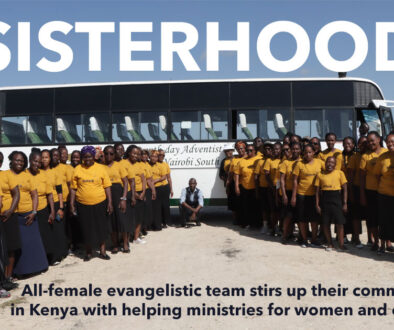Police Raid the Adventist Church in Gyanja, Azerbaijan
by Felix Corley
At least 20 police, including the local police chief, took part in a raid on Sabbath, May 12, at the Seventh-day Adventist Church in Azerbaijan's second city Gyanja. Protestants who asked not to be identified for fear of reprisals told Forum 18 News Service about the raid. Also present was the head of the local State Committee for Work with Religious Organizations, Firdovsi Kerimov. He refused to discuss the raid with a Forum 18 reporter. At least one congregation member was heavily fined.
The raid began at the church in the city's Kapaz District soon after it had begun its Saturday morning service. Police officers initially searched for foreign citizens who might have been present, examining the identity documents of all those attending. When they found no foreigners, police then began checking whether the 50 children present had written permission from both parents.
The 2009 Religion Law in this former Soviet nation does not specifically require children to have written permission to be present at religious meetings, but officials often insist on it when dealing with religious communities they dislike. Also, the presence of foreigners at religious worship is not prohibited by law. However, should they conduct any vaguely defined “religious activity” without government permission they risk punishment and deportation. This can take place without due legal process.
Police alleged that 14 of the children at the Adventist Church that day did not have written permission. Observers told Forum 18 that the children and their parents were attending the Church for the first time. Observers added that the police also refused to accept the written permission some children carried, insisting that parents must have the written permission they give notarized before it was valid.
Church members and their children were questioned for several hours. The police then wrote a report and warned those they questioned that prosecutions would follow, with fines.
At least one Adventist Church member has been summoned by police in the days since the raid. He was told that he was guilty of violating Article 299.0.3 of the Code of Administrative Offences which prohibits special religious meetings for children and small discussion groups. He was ordered to pay a fine of $2,165 US through a bank in order to avoid being taken to court. Because anyone prosecuted for exercising their freedom of religion normally loses the case, he paid the fine. To understand the cruelty of this fine, it must be noted that the minimum wage in this nation is $119 US per month.
The Gyanja Adventist congregation is among hundreds of religious groups which applied for re-registration ahead of the Religion Law's deadline at the end of 2009. Without such state permission to exist, all activity of any kind is illegal under the Religion Law. Large numbers of these applications have been rejected or ignored, including many Muslim mosques.
Felix Corley writes for Forum 18 News Service.



